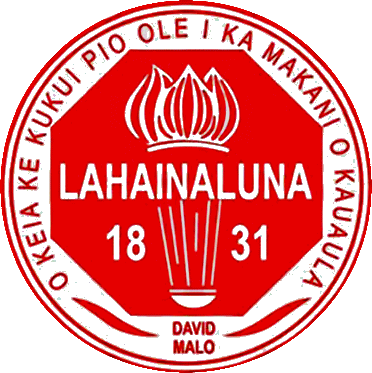Highlights:
Our History and Traditions
In 1834, only three years after the founding of Lahainaluna, its principal, Lorrin Andrews, started a student-run newspaper called Ka Lama Hawaii, or “The Hawaiian Luminary.” The paper’s first issue explained the importance of knowledge. “In enlightened lands,” wrote its editorial staff, “it is believed that the spreading of knowledge is a good thing. When wise people ponder and come upon good new thoughts not known before […] they then desire to disseminate it abroad, and not hide it, so that all men may know” (61).
Andrews narrowed Ka Lama’s purpose to three goals. The first was to “give the scholars of the High School the idea of a newspaper [and] to show them how information of various kinds was circulated through the medium of a periodical.” The second goal was, generally, “to communicate to them [students] ideas on many objects.” Thirdly, it was designed as a “channel through which the scholars might communicate their own opinions freely on any subject they chose" (Qtd in Silva 109).
Almost two centuries later, Lahainaluna’s current principal, Richard Carosso, sees Ka Lama as a space where students are “discussing among yourselves,” or where student voice is amplified.
“It’s one of our only resources for students to voice their opinions and to get the input from, you know, their classmates about what's going on at school,” said Carosso, adding that the paper also brings student voices to the school’s administration so the school’s leadership “can tell what matters to you guys.”
Historians remark that the original Ka Lama was mostly a way to send messages from missionary leaders to students; in 2025, it does the opposite. Both then and now, however, Ka Lama Hawai’i has encouraged discussion and literacy on campus while letting students engage with unfamiliar topics...



